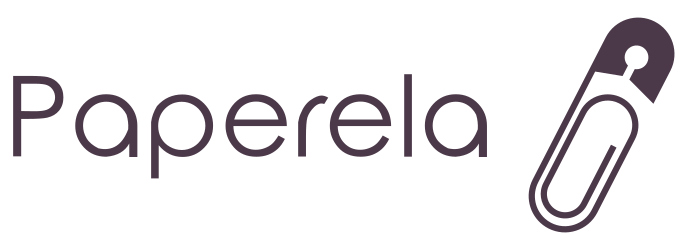
How To Pay Off Your Student Loan Debt & Save For Retirement Simultaneously

It may be challenging to balance your finances at any age, but it is all the more challenging if you have a sizeable debt to repay following college. However, as big of a burden as it may seem to be and even though many categorize paying it off as an immediate priority, acquiring savings for other milestones is just as important.

Joslyn/Pexels | Future planning starts as soon as you’re out of college
As long as you follow these procedures, juggling short-term objectives with financial future planning might up becoming much easier than you’d think.
1. Figure Out Your Dues
Make a list of all of your loans, including the total amount borrowed, its interest (including fixed or variable status), due date and minimum requirement of payment, and the length of the loan. Review the total amount of interest you will be required to pay. This could encourage you to make some early loan payments.
2. Be Mindful of Other Objectives
In order to make space in your budget for other financial objectives, it’s not a bad idea to maintain paying down student loan debt over time as it often has a relatively lesser interest rate. Prior to starting to save for other life objectives, such as a down payment for a home, establish your rainy day fund, pay off any debt with a higher interest rate, and do so.
3. Invest in Retirement Fund
If your company offers to match a portion of your savings for retirement, it’s crucial to save at least that amount in order to avoid losing out on any money. Even if you contribute a tiny amount to your retirement fund, it will have time to develop and have an impact on your future.

Tima/Pexels | For millennials in particular, who still have a while until retirement, this is particularly true
4. Benefit from Parental Guidance
If you just graduated from college, you could still be living at home or be able to continue being covered by your parent’s health insurance. Use that assistance to jump-start your finances, increase your savings, including retirement, and if you can, reduce your student loan debt more quickly.
5. Examine the Pros & Cons of Debt Consolidation
While combining many private loans into one may make payments easier, be cautious to compare the interest rate being provided to the average interest rate of the loans you already have. It’s crucial to balance the possibility of lower payments against the fact that you’ll likely pay more in interest over the course of the loan if you prolong the repayment term.
6. Examine Your Possibilities for Loan Forgiveness
You could be qualified for loan pardon as per your loan type, how many payments you’ve made, or the professional path you’ve chosen. However, as opposed to private student loans, the majority of these programs are accessible for student loan debt. Find out whether you could be eligible for forgiveness for part or all of your federal student debt in the future before considering loan consolidation.
7. Design A Customized Payback Schedule
If you need the motivation to start paying off your student loan debt, the psychological boost of repaying a lesser payment in full may be beneficial. But generally speaking, you should concentrate on dealing with highest-interest debt and just make the minimum payments on the other loans.

Karolina/Pexels | No one knows you better than you
Even while it would seem that paying off college debts would be a major financial challenge, it is feasible to do so while simultaneously readying yourself for retirement. You may advance in your financial future planning by doing the following seven actions.
More in Financial Planning
-
`
Creating a Seamless Marketing Campaign Across All Online Platforms | Some Effective Strategies
Maintain Visual & Tonal Consistency The aesthetic and voice of your brand serve as the cornerstone of recognition and trust. Whether...
March 16, 2024 -
`
How Effective Are Gender-Based Violence Laws?
Imagine a world where the fear of violence doesn’t cast a long shadow over everyday life, especially for women and girls....
March 4, 2024 -
`
6 Essentials of A Successful Startup
The entrepreneurial landscape is a testament to the human capacity for innovation and resilience. Navigating this terrain requires more than just...
February 26, 2024 -
`
Why Most Americans Don’t Know Their Retirement Savings – And What You Should Do About About It!
A new report from the TIAA Institute indicates that a significant portion of the population, about 1 in 4 Americans, is...
February 22, 2024 -
`
Lenny Kravitz Reveals ‘Bromance’ With Jason Momoa After Lisa Bonet Divorce
There are arguably very few stories that resonate with warmth and unity like that of Lenny Kravitz, Lisa Bonet, and Jason...
February 17, 2024 -
`
Mastering the Art of Sales: Strategies for Thriving in Any Economic Climate
In the fast-paced world of business, rumors about an impending recession can often stir anxiety among entrepreneurs. While the validity of...
February 9, 2024 -
`
6 Effective Ways to Future-Proof Your Business
Today, the concept of future-proofing your business has moved from a strategic advantage to a fundamental necessity. To future-proof means to...
February 3, 2024 -
`
Corporate Whistleblowers: Navigating the Legal Challenges
In the complex world of employment, encountering ethical dilemmas is more common than one might think. Imagine you’re working at a...
January 23, 2024 -
`
Barry Keoghan’s Triumphant Rise: From a Life-Threatening Infection During Filming to Oscar Glory
From the brink of losing his arm to the bright lights of the Oscars, Barry Keoghan’s journey is more than just...
January 21, 2024















You must be logged in to post a comment Login